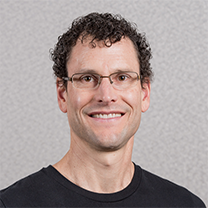
on Posted on Reading Time: 4 minutes
A team from Xoriant, Cisco, Kloud Services, and Amartus has been working with Ethernet Virtual Connection (EVC) network services, based on MEF’s Lifecycle Service Orchestration (LSO) architecture. These services have been implemented within the OpenDaylight UniMgr open source project. EVC services are offered by service providers to their subscribers.
There are six EVC services standardized by MEF:
- Ethernet Private Line (EPL),
- Ethernet Virtual Private Line (EVPL),
- Ethernet Private LAN (EP-LAN),
- Ethernet Virtual Private LAN (EVP-LAN),
- Ethernet Private Tree (EP-Tree), and
- Ethernet Virtual Private Tree (EVP-Tree).
Here is a brief explanation of these services.
E-Line Service: Ethernet Private Line (EPL) and Ethernet Virtual Private Line (EVPL)
An E-Line is a point-to-point ethernet service that connects exactly two User Network Interface (UNI) endpoints. EPL and EVPL services both fall under the E-Line service category.
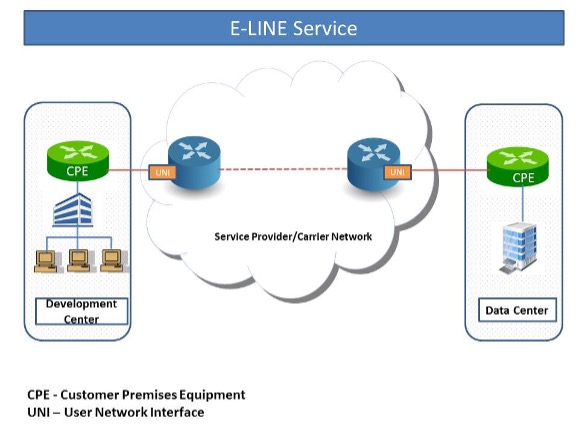
E-LAN Service: Ethernet Private LAN (EP-LAN) and Ethernet Virtual Private LAN (EVP-LAN)
An E-LAN is a multipoint-to-multipoint ethernet service that connects at least two UNI endpoints, and possibly several UNI endpoints. Each UNI can communicate with any other UNI that is connected to that ethernet service. EP-LAN and EVP-LAN services both fall under the E-LAN service category.
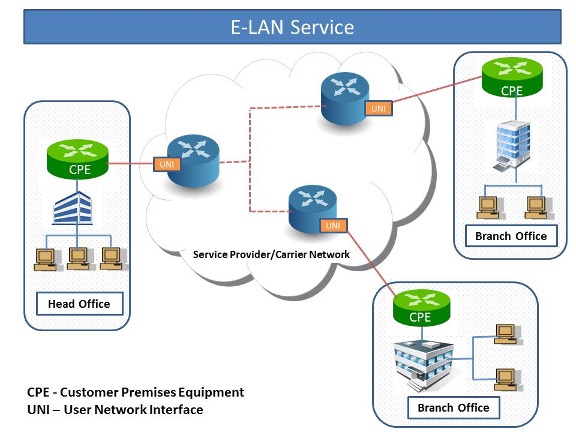
E-Tree Service: Ethernet Private Tree (EP-Tree) and Ethernet Virtual Private Tree (EVP-Tree)
An E-Tree is a rooted-multipoint ethernet service that connects at least two UNI endpoints, and possibly many UNI endpoints. The role of each UNI can be either root or leaf. A root UNI can communicate with all other root UNIs and all leaf UNIs, whereas a leaf UNI can communicate only with all root UNIs but not with any other leaf UNI. EP-Tree and EVP-Tree services both fall under the E-Tree service category.
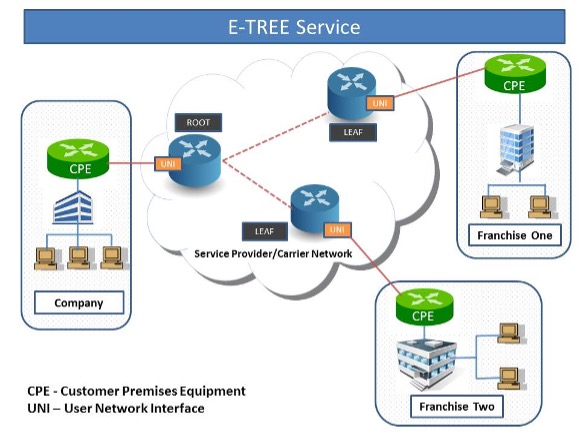
Ethernet Private Services
Ethernet Private services are port-based services, which means that only one such service can be provisioned on a given UNI. Ethernet Virtual Private services, on the other hand, are VLAN tag-based services, which means that multiple Ethernet Virtual Private services can be provisioned on one single UNI.
The OpenDaylight Plugin
The UniMgr project implements these six EVC services as a plugin for OpenDaylight, an open source platform for customizing and automating networks of any size and scale. The services are implemented at the LSO Legato and LSO Presto layers, as defined in MEF’s Lifecycle Service Orchestration (LSO) architecture for intra-provider LSO APIs.
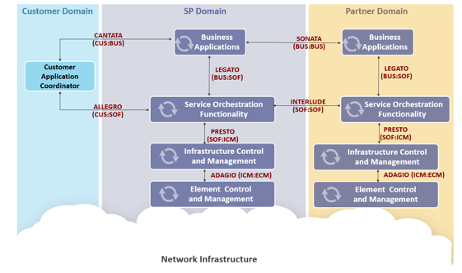
LSO Legato and LSO Presto APIs
LSO Legato is the topmost layer that interfaces with Operations Support Systems (OSS) / Business Support Systems (BSS), whereas LSO Presto is an underlying layer that interacts with devices through respective drivers. The UniMgr project has provided support at the LSO Presto layer for several years. The team from Xoriant recently contributed significant code to add support at LSO Legato and provided important updates to LSO Presto and the driver layer as well. This code includes some validations at LSO Legato that are over and above the validations specified in the corresponding YANG models. These validations ensure that LSO Legato receives absolutely valid requests and prevents rejection of equivalent API calls by the underlying LSO Presto layer.
The LSO Presto layer has the ability to automatically determine an appropriate driver for various UNI hardware so that correct configurations are provisioned on all UNIs participating in the service. Full functionality of Create/Update/Delete/Inquire for all the six services is implemented as part of the UniMgr project. The code supports creating services on UNIs that are part of one device or that span multiple devices.
Device Support
Currently the UniMgr project supports devices compliant with Cisco XR (ASR 9000) devices. Cisco and Xoriant collaborated to upgrade this support for work with more recent versions of IOS XR software. The Xoriant team can easily develop drivers for devices of other vendors to enable orchestration of these six services on other devices.
Creating EVC Service using Cisco XR: Step by Step
The team has put together a tutorial that makes it easy for you to try the UniMgr project for yourself. The tutorial demonstrates orchestration of these services using two Cisco XR devices running in a Cisco DevNet Sandbox. Postman is used to invoke the LSO Legato API with the necessary parameters to provision the services.
Step-by-step instructions, including how to access the sandbox and download the Postman environment and collection, are available on GitHub.
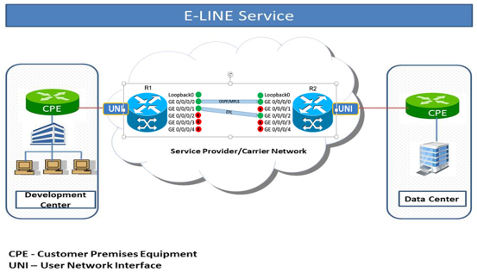
Learn More
For additional information and the formal definition of each of the six services, please also refer to MEF 6.3, MEF 55.1, and MEF 10.4.
Interested in connecting with others working on UniMgr? If you have questions, or wish to contribute to the UniMgr project, please reach out to us at: unimgr-dev@lists.opendaylight.org.
UniMgr Project Contributors
Charles Eckel, Cisco
Santanu De, Xoriant Corporation
Shrinivas Joshi, Xoriant Corporation
Kiran Ambardekar, Xoriant Corporation
Mahesh Jethanandani, Kloud Services

